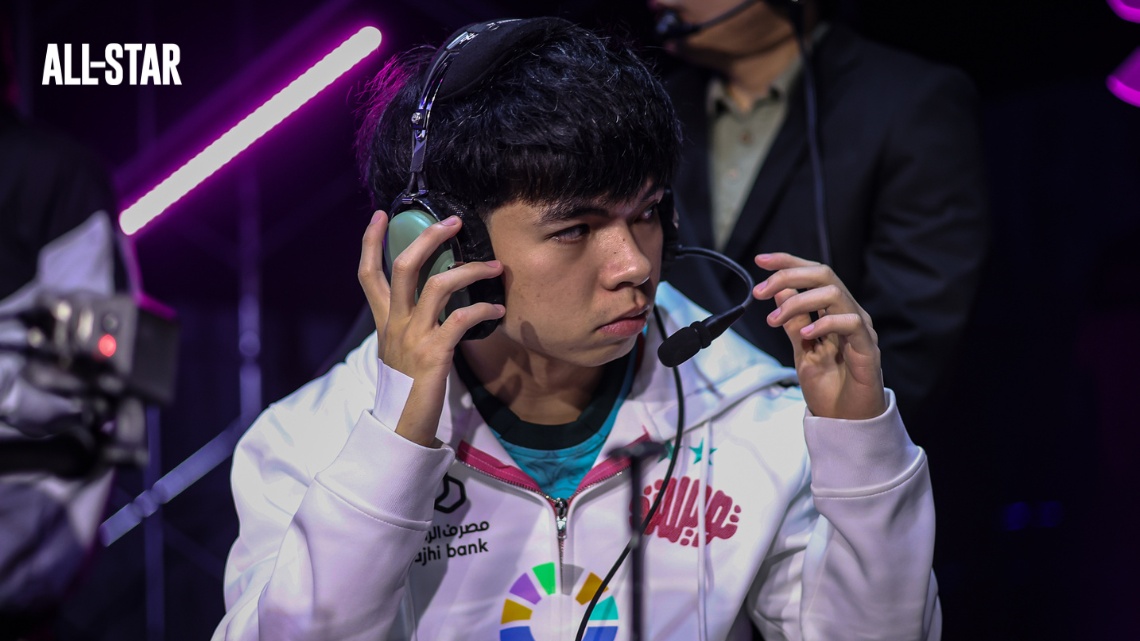Carlo Roma: The Bunso Who Stepped Up for Mama
Carlo Roma is a mama’s boy. The youngest of three brothers, Twisted Minds’ “Caloy” breaks his mama’s heart every time he leaves home.
“Tuwing umaalis po ako, umiiyak po ang Mama ko, hindi po siya nagpapakita sa akin tuwing paalis ako pero sinasabi po sa akin ng Papa ko,” Caloy tells ALL-STAR.
His mother, now in her fifties, carries the constant worry of a parent whose child has chosen an unfamiliar road. She fears for his health, his safety, and the demands of a career that is still misunderstood by many.
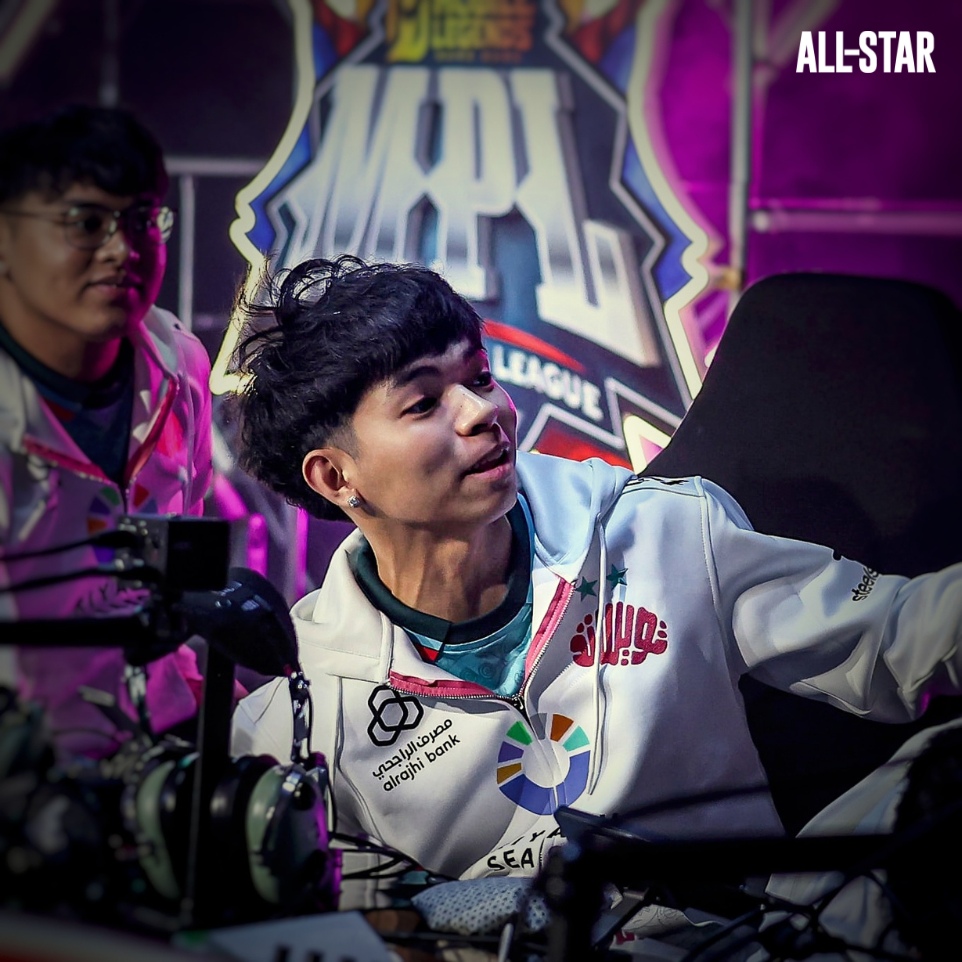
“Walang wala kami.”
“Hindi po sila mapakali dahil baka kung ano daw po mangyari sa akin, baka daw magkasakit ako,” Caloy explained, revealing how her mother would hide her teary eyes every time he would go back to the boot camp.
It was the usual worries of a mother—only magnified by the reality that her bunso has become a family provider. Caloy dedicates his MPL journey to her, funneling his earnings into medicine, daily needs, and the promise that she will never have to borrow money again.
Caloy’s father used to be a driver, shuttling company clients on long-distance trips to Batangas and beyond. His mother stayed at home, once selling food to supplement the family’s needs.
But when the pandemic hit in 2020, everything unraveled. His father lost his job. His mother could no longer sell food. The family depended on relief packs from the barangay—cans of sardines, instant noodles, a few kilos of rice.
“Walang wala kami, Kuya Abo,” he told ALL-STAR’s senior editor.
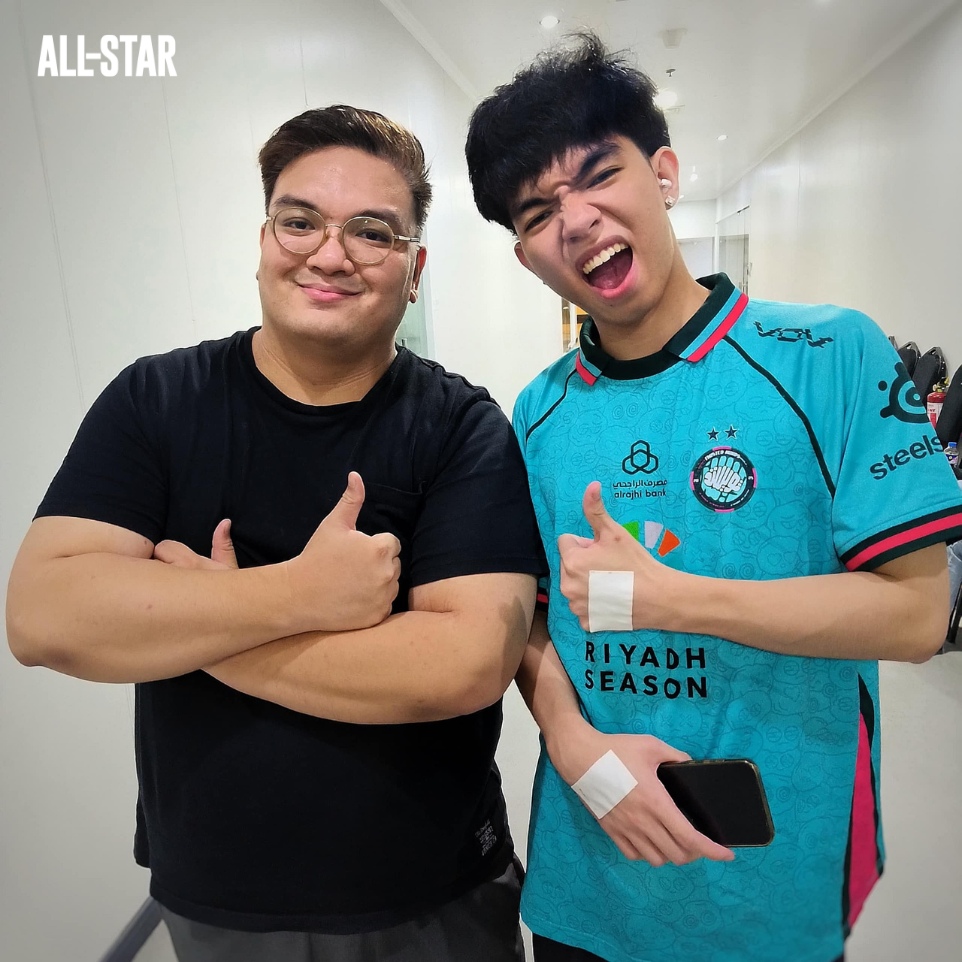
“Parang umaasa lang kami noon sa mga nagbibigay ng relief goods… Parang walang wala kami,” Caloy remembers. His father picked up construction sideline jobs when he could, just to put food on the table.
It was during those months of scarcity that Caloy realized he could no longer afford to live as the sheltered bunso. He would have to step up.
But to do that, he would have to break his parents hearts too.
It was his mother’s dream for Caloy to graduate from college. Like many Filipino parents, she believed a diploma was the surest ticket to stability. But Caloy knew the truth of their household finances—sending him to college would bleed them dry. Tuition, allowances, daily expenses: it would all come from pockets that were already empty.
So he played a risk card. He entered esports.
“Kung makapagtatapos ako ng pag-aaral, mauubos ko lang din yung pera niyo pang college, kaya hayaan niyo na lang na ako ang magbigay sa inyo ng pera,” he told his parents.
It was not rebellion but sacrifice. While other sons promised to finish school for their mothers, Caloy promised something else—that he would earn, that he would provide, that he would carry the weight of being the bunso who stepped up.
“Mama, champion na ako, may pera na tayo!”
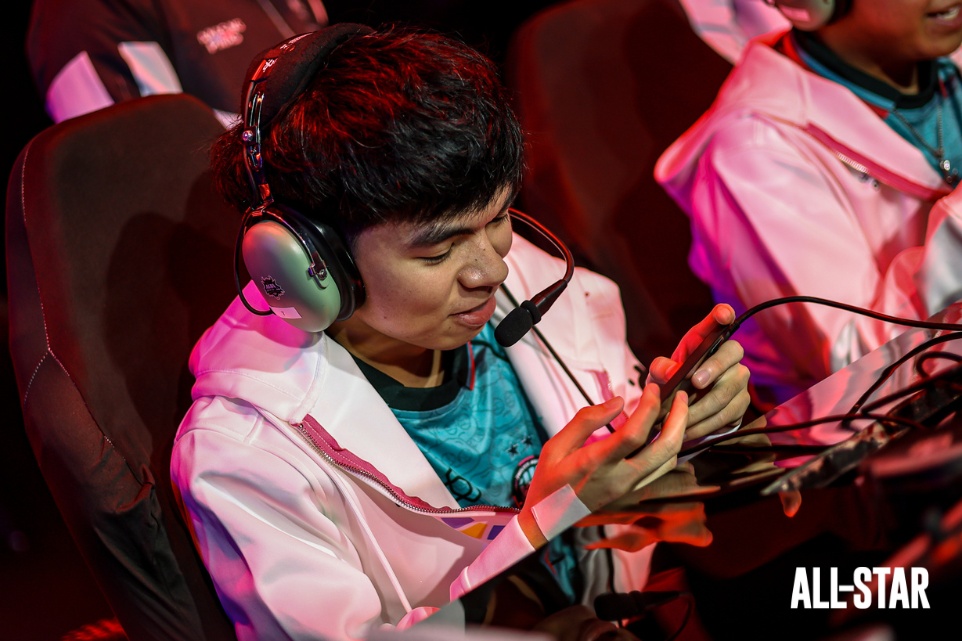
The first time Caloy earned real money from esports, he came home with a surprise. It was a local tournament in the province of Albay, and the top prize was P2 million. After winning the amateur championship there, he received ₱200,000 as his share. Without telling anyone, he handed half of it—₱100,000—to his mother. For a family that once relied on relief goods during the pandemic, it felt like a miracle.
“Sobrang saya nila kasi hindi nila ine-expect… Sabi ko lang, ‘Mama, maglalaro lang po ako sa tournament.’ Tapos nagulat sila noong sinabi ko, ‘Mama, champion na ako, may pera na tayo!’” Caloy recalls.
As he said this, Caloy’s face lit up—his smile stretched wide, almost boyish, but his eyes carried a deeper glow. It was the look of someone who had turned hardship into purpose.
That night, for the first time in a long while, his mother no longer had to worry where tomorrow’s money would come from.
There was pride in the bunso’s eyes as he recalled this core memory: how his team endured a 14-hour commute to Albay while other squads rode in vans, how they traveled with no pocket money, only the weight of their dreams.
“Commute pa kami noon, halos 14 hours ang biyahe, wala kaming service. Kami lang po ang team na walang service, nag-commute lang kami papuntang Albay. Dala-dala lang namin yung pangarap namin, pangarap lang talaga.”
The victory there meant more than a trophy. It was the first time Caloy could hand real money to his mother, the first time he felt the joy of lifting some of his family’s burdens. In that moment, the sacrifices, the exhaustion, the risk of choosing esports all found their worth.
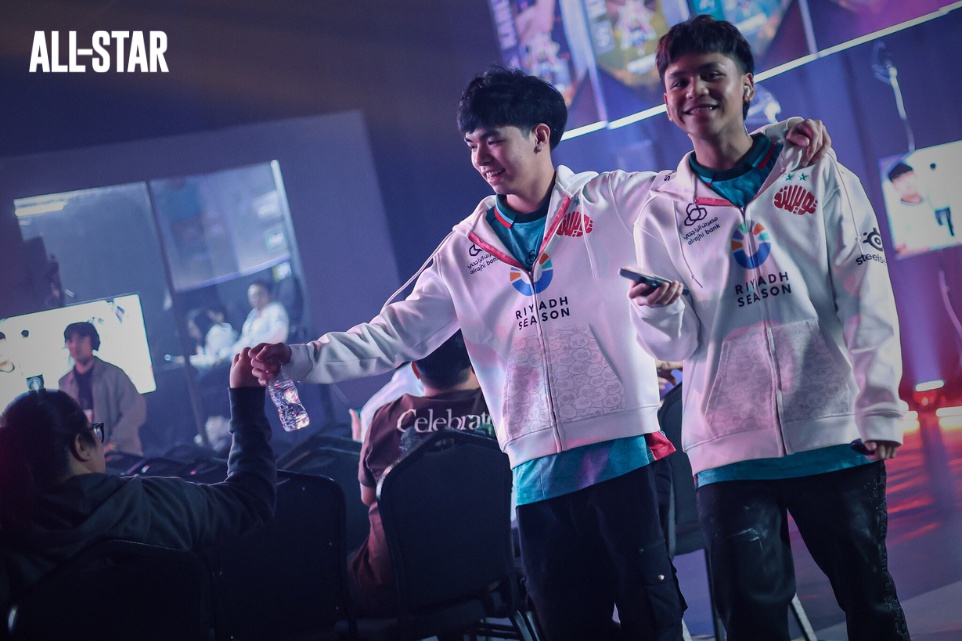
The Bunso Who Stepped Up
Caloy’s steady rise into the MPL is not anchored in ambition but in devotion.
Every win, every step onto the stage, is tied to the woman who raised him. While his peers dream of trophies and glory, Caloy’s measure of success is simpler: to ease his mother’s burdens, to make her proud, and to give back what she once gave him.
“Dinededicate ko po itong pagpasok ko sa MPL sa Mama ko po. Good news, nakapasok ako sa MPL, yung bad news naman, nagkasakit si mama at magastos pa.”
Most of the time, Caloy sends half of all his earnings to his mother. But there are moments—when medicine runs out, when bills pile up—when half is not enough. On those days, he sends most, leaving only a fraction for himself.
“Ayaw ko po yung nanay ko na manghiram sa ibang tao para makabili ng mga kailangan sa bahay. Ayaw ko rin pong umasa siya sa mga ibang kamag-anak namin, sa ibang tao para sa pambili ng mga gamot niya na hindi mabili. Gusto ko pong ibigay lahat iyon. Gusto ko po ako po mismo ang gagawa noon para sa kanya.”
As he said this, Caloy’s bright face shifted into something more somber. His usual boyish grin gave way to the quiet resolve of a son who has seen too much of life too early.
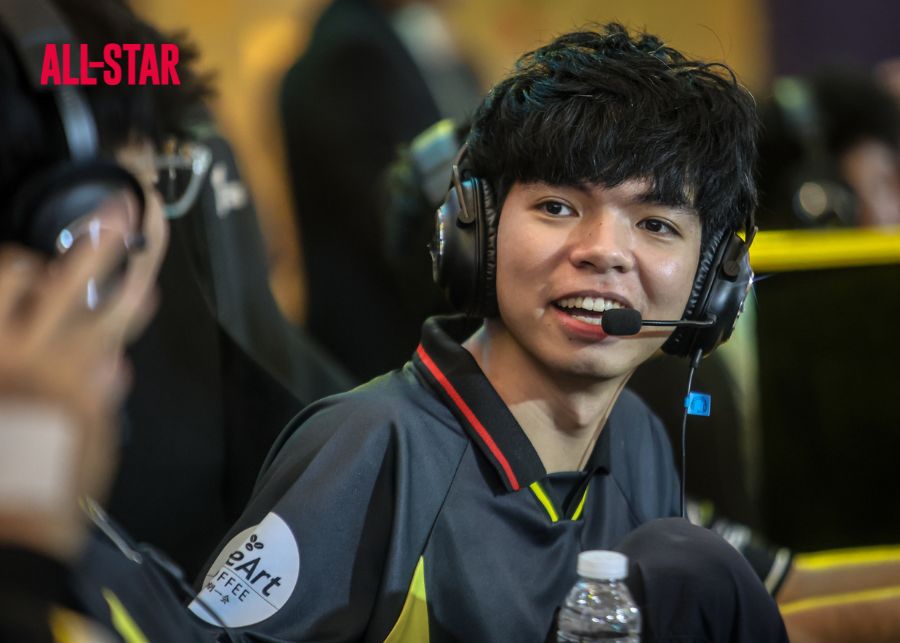
The bunso who should have been spared now carries the burdens willingly, as though each responsibility were a medal he chooses to wear on his chest.
“Para sa akin, Kuya Abo, hindi ko na po iniisip yung pera kasi ang pera, nandiyan lang. Siguro, nagseset aside rin ako para sa sarili ko, para sa future ko, pero para sa pamilya ko, binibigay ko po ang lahat.”
Now, every time he walks up the stage of the MPL, he finds strength by thinking of his family.
“Sobrang gusto kong maging maayos ang buhay ng pamilya ko. Nilalakasan ko lang ang loob ko pagtuloy sa stage. Iniisip ko lang lagi yung Mama ko. Parang sobrang lakas ng loob ko kapag iniisip ko ang Mama ko.”
In many Filipino families, the bunso is the one most protected—the child expected to be cared for. But Caloy couldn’t lean on that privilege. Watching his parents struggle, he felt an urgency that went beyond his age.
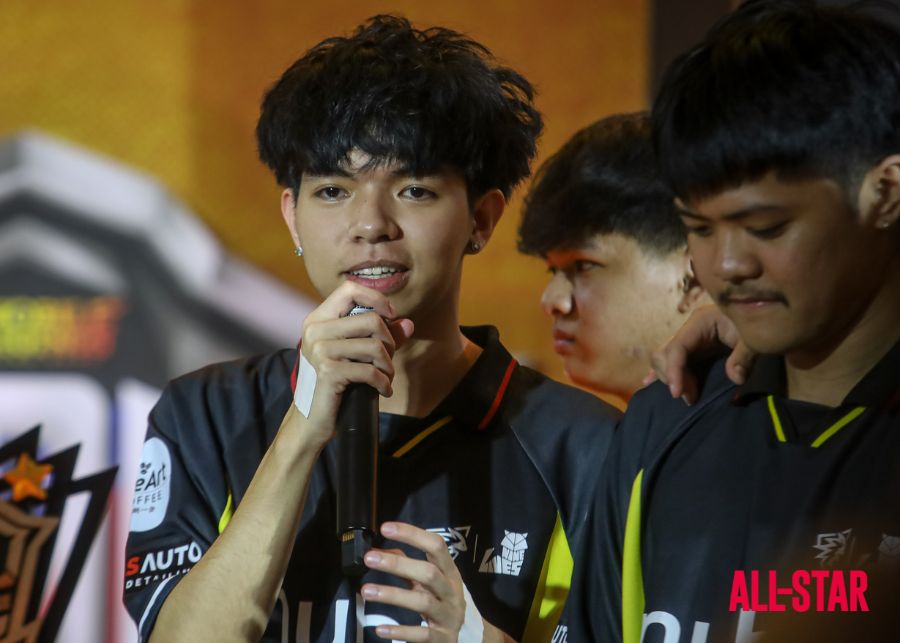
“Parang kahit ako yung bunso, parang gusto ko nang mag step up talaga, gusto kong ako na rin ang magsabi sa kanila na ‘Kaya ko po,’” Caloy said.
“Kahit ako yung bunso, gusto kong tumayo sa sarili kong paa, gusto ko ng mag step up agad at tumulong sa sarili kong pamilya.”
Caloy’s parents are not familiar with esports or Mobile Legends: Bang Bang. They don’t understand the strategies, the heroes, or the pressure of competition. But for Caloy, one of his biggest dreams is simple: to see them in the crowd, watching him play on stage.
“Gusto kong maranasan iyon, kahit playoffs, gusto ko nandoon sila. Sila yung lakas ko ng loob eh.”
For now, his parents only hear the stories secondhand—updates from Caloy over the phone, the occasional photo, the excited tone in his voice after a win. But one day, he hopes they will see it with their own eyes: the lights, the stage, the thousands of fans chanting, and their youngest son standing tall in the middle of it all.
Because for Caloy, victory is not just about gold medals or championships. It is about giving his mother peace, showing his father that the road he once drove for others has led somewhere for his own family, and proving that even the bunso can carry the load.
Carlo Roma is fighting for his mama. And every game, every cheer, every moment under the spotlight is his way of saying: “Mama, kaya ko po.”
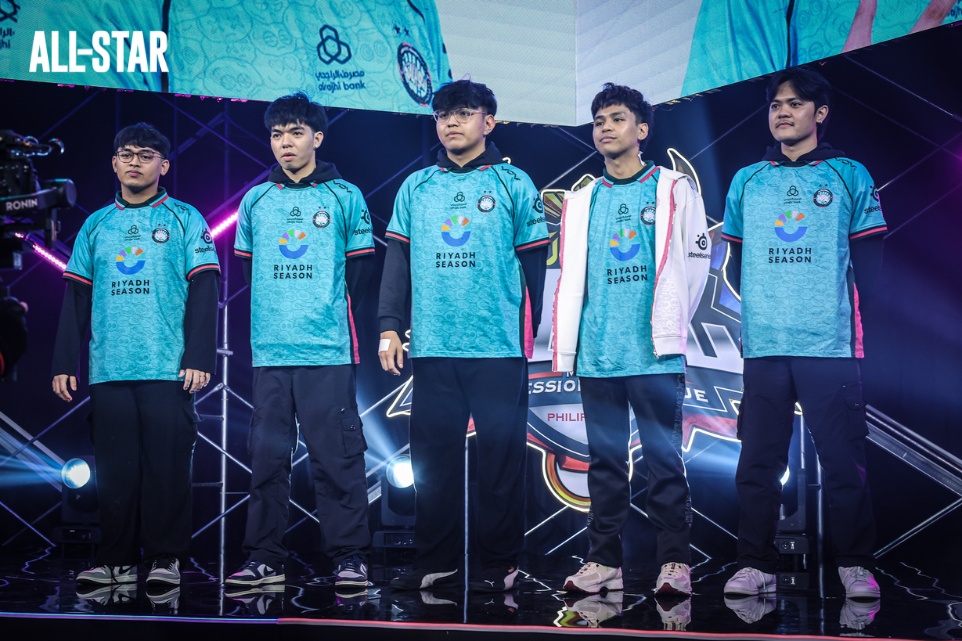
ALSO READ:
